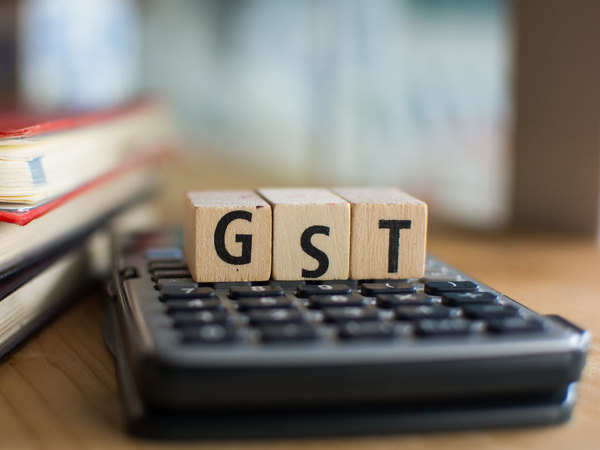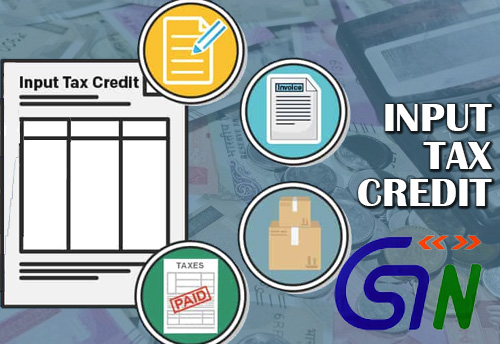1.0 Introduction
Creation of provisions in the books is a normal accounting practice and this is religiously followed upon at end of a financial year / period. The provisions are required to be made in accordance to the applicable Accounting Standards. In this article we shall be deliberating upon the GST implications on provision for expenses recognized in Books of Accounts.
As per Accounting Standard 29 “Provisions, Contingent Liabilities and Contingent Assets” a ‘provision’ is a liability which can be measured only by using a substantial degree of estimation. Further the said Standard mandates that a ‘provision’ should be recognised when:
(a) an enterprise has a present obligation as a result of a past event;
(b) it is probable that an outflow of resources embodying economic benefits will be required to settle the obligation; and
(c) a reliable estimate can be made of the amount of the obligation.
If these conditions are not met,no provision should be recognised.
As per the definition of ‘provision’ as given in AS 29 as stated supra it can be said that provision is made in respect of any expense (capital as well as revenue) incurred by an entity. Also, provision is recognised only in cases where the goods or services have actually been received or partially received, because as per AS 29 ‘provision’ is to be recognised when it has a present obligation as result of past event.
Further in cases where provision is recognised the invoice has not been raised / received by the supplier / recipient, as in situations where invoice has actually been raised and received, a ‘liability’ will be accounted for the amount of invoice and there would be no role of any estimation. Needless to mention here that for recognising a ‘provision’ a reliable estimate is required to be made.
As far as tax treatment of ‘provision’ is concerned under the Income Tax Act, 1961 some of the provision for expenses are not allowed as deduction and thus are required to be added back while computing the taxable income.
As regards treatment of ‘provision’ under GST law is concerned, specific law does not exist in this regard and accordingly for the benefit of readers, the GST implications on the recipient as well as supplier in respect of provisions recognised in books of accounts have been decoded in the succeeding paras.
2.0 GST implication in hands of recipient on recognition of ‘provision for expenses’in its books of accounts
The GST implication upon the recipient of supply on recognising the provision for expenses in respect of receipt of goods or services or both is tabulated below: –
| Case | GST implication |
| Case-I Provision for expenses made in books of accounts in respect of receipt of goods or services or both (not covered under reverse charge mechanism). | a) Payment of GST: In this case by creating provision in its books, no liability to deposit GST devolves on the recipient and such tax will be required to be paid by supplier upon crystallisation of the time of supply as per Section 12(2) (for goods) and 13(2)(for services) of the CGST Act,2017. The tax can however be charged by such supplier in the tax invoice raised upon the recipient. b) Input Tax Credit: No Input Tax Credit can also be availed by such recipient in light of Section 16(2)(a) of CGST Act, 2017 as he is not in possession of the tax invoice. Thus, once the tax invoice is raised by the supplier and is received by the recipient then only ITC can be availed by recipient in case other conditions for availing the ITC are fulfilled. |
| Case-II Provision for expenses made in books of accounts in respect of receipt of goods or services or both (covered under reverse charge mechanism). | a) Payment of GST: Under reverse charge mechanism the liability of deposition of tax is on the recipient. In this regard the payment of tax hinges upon the time of supply which is determined as per Section 12 and 13 of CGST Act. The GST implication on recipient is explained below: i) Goods: As per Section 12(3) of CGST Act,2017 the time of supply in cases of supply of goods covered under reverse charge would be earliest of: (a) date of receipt of goods (b) date of payment or (c) 31st day from date of invoice. As in this case the goods have been received, the time of supply would be attracted and tax would be required to be deposited by the recipient of supply.However, in case provision is recognised in books without receipt of goods, the time of supply would not be attracted and accordingly payment of tax would not be required. ii) Services: As per Section 13(3) of CGST Act,2017 the time of supply in cases of supply of goods covered under reverse charge would be earliest of: (a) date of payment or (b) 61st day from date of invoice. As in cases where provision is made invoice will not have been received by recipient / issued by supplier, accordingly the time of supply would not be attracted in case payment of any advance has not been made. Consequently, tax would not be required to be deposited by the recipient of supply. However, whenever payment is made to supplier or in case invoice is received and not paid within 60 days of the date of invoice, the 61st day would be regarded as time of supply and payment of tax would be required to be made accordingly. It is pertinent to mention here that in case of services; the supplier is required to raise invoice within a period of 30 days (45 days for NBFCs/ Banks/ FIs/Insurance Co’s) and in case he does not raise invoice within such period the time of supply of services (other than those covered under reverse charge) will be regarded as date of provision of service. However ,in respect of services covered under reverse charge, even if invoice is raised by supplier after this time there will be no impact on determination of time of supply. b) Input Tax Credit: ITC can be availed by recipient in regard to tax paid under reverse charge mechanism in case other conditions for availing the ITC are fulfilled. |
3.0 GST implication in hands of supplier on ‘provision for bad and doubtful debts’ recognised in its books of accounts
Under GST Law the supplier of goods or services or both is required to deposit tax upon issuance of invoice even if the payment towards the same has not been received.
Now in case the payment is not received from the recipient of supply, usually in accounts a ‘provision for bad and doubtful debts’ is created in order to depict a true and fair view of the state of affairs. The question before us is whether any adjustment in the future GST liability can be made by the supplier for such provision created.
The answer to this is NO as GST law does not permit any adjustment in GST liability on account of creation of provision for bad and doubtful debts. It is pertinent to mention here that even if bad debts are written off in the books then also such adjustment is not allowed under GST Law.
4.0 GST implication in hands of supplier on ‘provisions for expenses’ recognised in the accounts of the recipient
This title appears to be weird in sense how can there be implication on supplier in case any provision is made in the books of the recipient. However, this statement holds true in cases of supply of services where Section 13(2)(c) of CGST Act,2017 is applicable.As per Section 13(2)(a) and (b) the time of supply of services shall be the date of issue of invoice (date of provision of service if invoice not issued within prescribed period) or date of receipt of payment whichever is earlier.
However, in cases where date of issue of invoice, date of provision of service and date of receipt of payment are not available the provisions of clause (a) and (b) of Section 13(2) do not apply. In such cases clause (c) of Section 13(2) of CGST Act would be applicable which provides that the time of supply would be the date on which recipient shows the receipt of services in his books of accounts.
This clause would be operative in cases where due to some dispute or other reasons the date of provision of service is not known and further neither the invoice has been issued nor has the payment been received by the supplier of service. In such cases the supplier would be required to poke his nose into the books of accounts of recipient of service to know whether such person has accounted for i.e. made provision for expense towards such receipt of service.
In case the recipient has recognised provision for expenses towards receipt of services in his books of accounts, the date of entry in books by the recipient would be regarded as time of supply and thus payment of tax would be required to be made by the supplier. This situation will applicable in rare cases and rather would be used as a tool by the Tax Deptt. to raise demands.
5.0 GST implication of persons required to deduct tax at source on recognition of ‘provisions for expenses’ in its books of accounts
As per Section 51(1) of CGST Act, 2017, certain persons (Govt. Deptt, PSUs etc) are required to deduct tax at source@1% of the payment made to the supplier (the deductee) of taxable goods or services or both, where the total value of such supply, under a contract, exceeds Rs 2,50,000/- (excluding the amount of GST and cess indicated in the invoice).
Thus, individual supplies may be less than Rs. 2,50,000/-, but if contract value is more than Rs. 2,50,000/-, TDS will have to be deducted. However, no deduction shall be made if the location of the supplier and the place of supply is in a State or Union territory, which is different from the State, or as the case may be, Union Territory of registration of the recipient.
Now the question arises as to whether TDS would be required on the provision of expenses recognised in books towards taxable supply of goods or services received where the location of supplier, place of supply as well as location of recipient is in same State / Union territory. In this regard, Section 51(1) of CGST Act provides that deduction of tax at source is required to be made at time when payment is made or credited to the supplier.
Thus payment is the triggering event for deducting tax at source. Accordingly, tax would not be required to deducted at source under Section 51, in cases where only provision of expenses has been recognised in books as usually in such cases payment towards the same would not be made in absence of invoice.
***
[rainbow]Don’t miss the next GST Update / Article / Judicial pronouncement[/rainbow]
Subscribe to our newsletter from FREE to stay updated on GST Law
Resolve your GST queries from national level experts on GST free of cost.
Frah Saeed is a law graduate specializing in the core field of indirect taxes and is the Co-founder of taxwallah.com. She has authored many publications on GST and is into full-time consultancy on GST to big corporates. She as a part of taxwallah.com heads a team comprising of Chartered Accountants and Advocates and plays a key role in our mission to disseminate GST knowledge to all.




